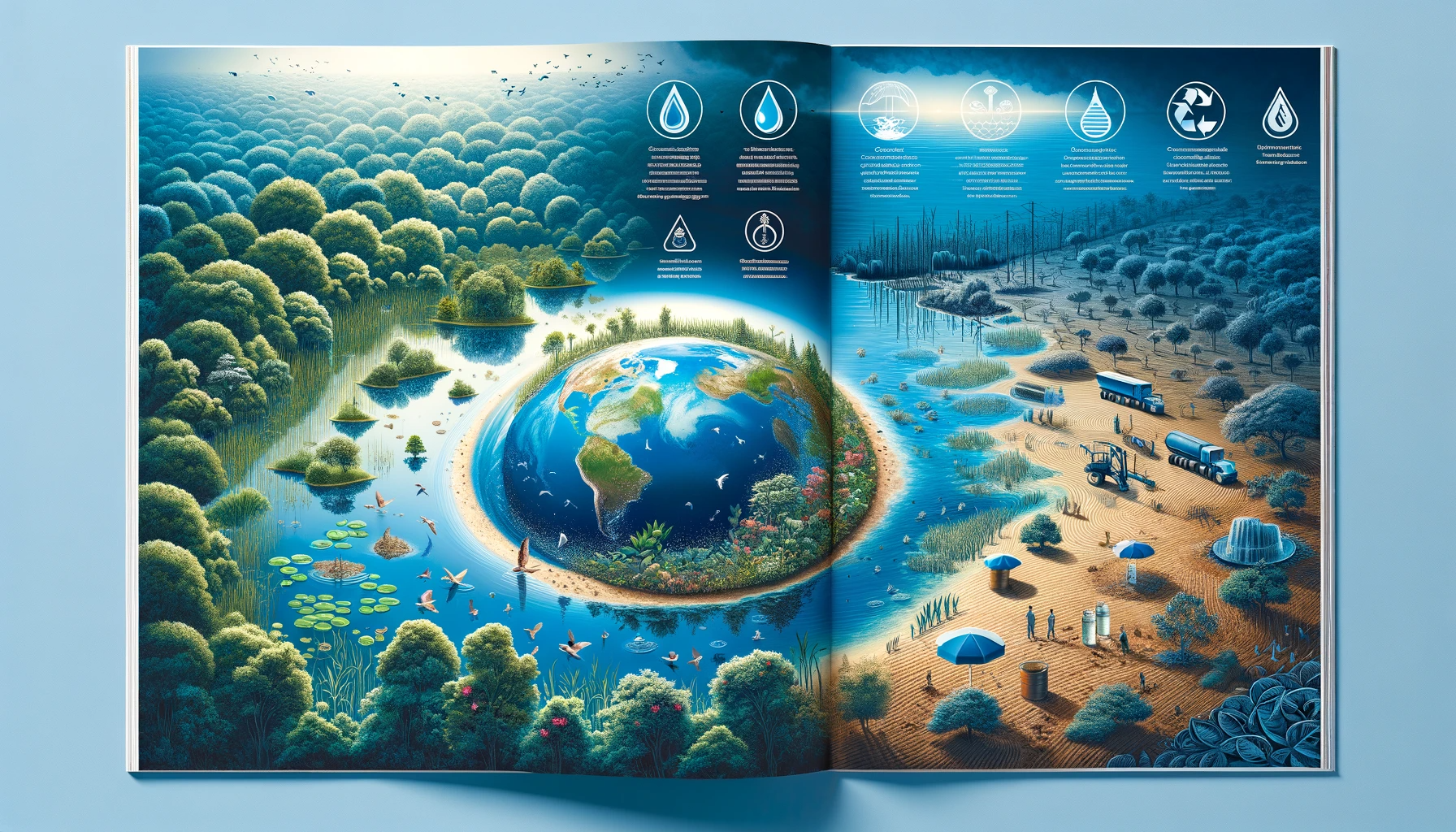Water, covering over 70% of our planet, is a fundamental resource for life. However, despite its abundance, fresh and accessible water is increasingly scarce, making conservation critical.
Freshwater Ecosystems Under Threat
Freshwater ecosystems, vital for biodiversity, are under significant stress. Factors like pollution, climate change, and overuse are impacting these ecosystems. WWF reports that 2.3 billion people currently live in areas with inadequate clean water, and this number could rise significantly in the coming years. Freshwater wildlife has declined by 35% since 1970, indicating the severity of the situation.
Water Footprint and Agriculture
Agriculture accounts for 92% of humanity’s water footprint. Transitioning to diets with lower water footprints, such as those rich in vegetables and fish, could dramatically reduce water use. For instance, producing soya milk consumes only a quarter of the water needed for cow’s milk.
Ocean Resources
The ocean, home to 94% of the planet’s wildlife, plays a crucial role in global trade, recreation, and new economic activities like deep-sea mining. However, human activities are causing significant marine pollution, affecting the ocean’s health and biodiversity. It’s crucial to develop sustainable practices in sectors linked to the ocean to preserve its ecosystems.
Wetlands: Crucial for Climate, Biodiversity, and Water
Wetlands are vital for climate change mitigation, biodiversity conservation, and water management. They store carbon, support diverse wildlife, and help manage water extremes like floods and droughts. Protecting and restoring wetlands is thus a priority for climate-smart conservation.
Benefits of Water Conservation
Conserving water has numerous environmental benefits, including reducing water pollution, preserving wildlife habitats, and reducing carbon emissions. Economically, it lowers utility bills and protects infrastructure. Additionally, water conservation is essential for sustainable agricultural production and public health protection.
Consistency with SDGs
This article aligns closely with several Sustainable Development Goals (SDGs), especially:
- SDG 6 (Clean Water and Sanitation): Focuses on ensuring the availability and sustainable management of water.
- SDG 14 (Life Below Water): Aims to conserve and sustainably use the oceans, seas, and marine resources.
- SDG 15 (Life on Land): Addresses the need to protect, restore, and promote sustainable use of terrestrial ecosystems.
- SDG 13 (Climate Action): Highlights the role of wetlands in climate change mitigation.
Conclusion
Conserving our water resources is vital for maintaining the health of our blue planet. Through sustainable practices in agriculture, industry, and daily life, we can protect this crucial resource for current and future generations, while supporting global efforts to achieve sustainability goals.


